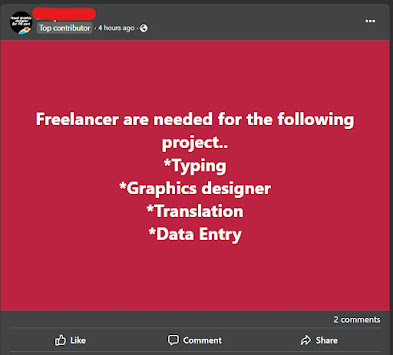The Great Divide: Why Clients are Polarized Over AI Content Writers
I've been noticing a trend lately. As AI programs like ChatGPT burst onto the scene, the world of content writing has split into two camps. On one side, there are clients who steadfastly stick to their "Humans Only" policy. Just glance at job postings on Upwork, and you'll see a sea of ads screaming: "No AI Writing!"
Yet, on the other side, new writers are emerging, powered by these AI tools. Overnight, people with no previous writing experience are donning the writer's hat, all thanks to the convenience of AI. This shift creates a ripple of concern, sparking a debate that needs our attention. What's behind this great divide over AI content writers? Let's dig deeper to understand both sides of this captivating story.
Understanding the Resistance Against AI Tools in Content Writing
I TRIED TO SEE THE WORLD THROUGH THEIR EYES when I began delving into the 'Humans Only' camp. Why the hesitation towards AI tools like ChatGPT? Three key reasons stood out:
- The Human Element: This was the crux of it all. When we read a beautifully crafted piece, it often stirs something within us. There's a connection, a resonance. Can a machine replicate that? It can mimic our writing style, but can it truly understand and replicate the emotions, context, and soul that goes into writing? That's a question many clients ponder over.
- Authenticity Worries: Many clients have voiced concerns about the originality of AI-generated content. There's a fear that the AI might just rehash existing content, lacking the fresh perspective that a human writer can bring.
- Data Security: In a world where data breaches are common, clients often feel apprehensive about sharing sensitive company information with AI tools. There's a trust factor here that can't be overlooked.
You see, it's not about an aversion to technology. It's about upholding integrity, personal touch, and security in content creation. It's about creating content that informs, connects, inspires, and assures. That's the essence of the 'Humans Only' camp's stance.
But what about the other side of the coin? Why are some clients open to AI tools? Let's dive into that next.
Embracing the Future: Why Some Clients Choose AI in Content Writing
Now, let's pivot to the clients who aren't resisting this technological shift but are, in fact, embracing it. Looking at things from their perspective, using AI tools like ChatGPT doesn't seem so black and white. There are, in fact, several compelling reasons behind their decision:
- Speed and Efficiency: AI tools can work round the clock, churning out content faster than any human could. This efficiency makes them perfect for clients who have large volumes of work or tight deadlines to meet.
- Cost-effectiveness: In the business world, it's all about getting the most bang for your buck. AI tools can produce a high content volume at a fraction of the cost of hiring human writers, making them an attractive option for cost-conscious clients.
- SEO Optimization: Another area where AI tools truly excel is SEO. Many AI writing tools have built-in features to help optimize content for search engines, a major win for clients aiming to amplify their online visibility.
- Consistency: AI tools can consistently deliver high-quality content. They don't get tired or have off days. AI tools can be the perfect solution for clients seeking a consistent tone and style across their content.
- AI-Aware Writers: Clients have also started to value writers who are not just familiar with AI but can skillfully wield it. These writers are often more attuned to the modern landscape of digital content creation, including concepts like search engine rankings. While this doesn't hold true for all, I've found that writers who leverage AI tools tend to be more adaptable and forward-thinking.
But, you may ask, do these advantages mean AI tools are set to completely replace human writers? The answer is more nuanced than a simple 'yes' or 'no'. Let's delve deeper into this in the next section.
The Indispensable Role of Human Writers
With AI making leaps and bounds in the content writing scene, it's natural to wonder: "What does the future hold for us, the human writers?" As someone deeply entrenched in this field, I'm confident our role is far from over.
- Emotional Intelligence: AI has come a long way, but it hasn't caught up to the emotional intelligence we humans possess. We pull from our life experiences, stir emotions in our readers, and write with an understanding and empathy that AI simply can't replicate.
- Creative Spark: Humans have inherent creativity that breathes life into our writing. Let's say you're writing about a seemingly mundane topic, like window blinds. A human writer could spin a compelling tale about how the right blinds can transform a room's aesthetic, while an AI might merely list the types.
- The Human Connection: The crux of writing lies in human connection. As humans, we understand our audience in a way AI tools can't. We know what makes them laugh and what makes them think, and this deep understanding enables us to create content that strikes a chord.
- Understanding Nuance: Humans instinctively grasp subtle nuances and cultural contexts. For instance, an AI tool might not understand why a joke is funny or offensive in a particular culture, but we do. This ability helps us create accurate, rich, and engaging content.
While AI tools are handy, they can't overshadow the value we bring as human writers. We should see AI as an ally, a tool that can help us adapt to the changing landscape of content writing.
That being said, we can't ignore the quickening pace of AI advancements. The transition from GPT-3.5 to GPT-4 demonstrates a significant leap in capabilities. While AI can't fully replicate human skills in writing currently - our nuances, empathy, and personal experiences - the gap seems to be narrowing.
So, what's next for us? The key lies in adaptability, continuous learning, and integrating AI into our writing process in a beneficial way. This adaptability and open-mindedness towards AI tools may also be what sets apart the preferences of different clients in hiring. Understanding this, we can better cater to the diverse needs of our clients, some of whom may appreciate the unique advantages that AI-assisted writing can offer.
The Advantage of Harnessing AI in Writing
Let's face it: a story written from the heart captures the audience's attention. As human writers, our strength is crafting narratives that resonate deeply with readers. But in today's digital world, resonating with human readers is only half the battle - your content also needs to win the favor of search engine algorithms. That's where the power of AI-assisted writing comes into play.
- SEO Mastery with AI: An AI-proficient writer can artfully blend captivating content with savvy SEO tactics. Imagine using an AI tool to pinpoint trending keywords or identify emerging search patterns. This allows writers to create content that's engaging to read and highly visible in search engine rankings.
- Adapting to Changing Trends: In the fast-paced world of SEO, what worked yesterday might not work today. AI tools are designed to keep pace with these changes, helping writers devise content strategies that are always one step ahead.
- Consistency and Speed: Consistency in tone and style can elevate a brand's image, and speed can give them the edge in a competitive market. AI can be a powerful ally here, ensuring uniformity across various content pieces and aiding in quicker content generation.
- A Balance of Art and Science: As writers, we're artists. But in the digital arena, we also need to be scientists. The artistry of our words can draw readers in, while the science of SEO, made simpler with AI, can get our content in front of a wider audience.
- Leveraging the Best of Both Worlds: An AI-proficient writer offers a unique blend of creativity and technical know-how. They can tell your story in a way that resonates with readers while ensuring your content shines in search engine rankings.
In the digital landscape, hiring a writer with knowledge of AI usage could be more of a necessity than a luxury. While a traditional writer can weave a compelling narrative, an AI-proficient writer can do that and ensure your content is search engine-friendly. After all, the aim of producing content isn't just to tell a gripping story - it's also about getting that story seen by as many people as possible.
So, if you're a client on the hunt for a content writer, you might want to consider this: Is it possible that by focusing only on 'traditional' writers, you could be missing out on the opportunity to maximize the visibility and impact of your content? It's food for thought. After all, the world is moving fast, and the realm of content creation is no exception. Adaptability, technological savviness, and understanding the blend of art and science in writing could be the way forward.
The Digital Quill: How Human Writers Leverage AI for Greater Impact
You know, there's something magical about being a writer. We can weave words into narratives that resonate with people, stir their emotions, and maybe even change their lives. That's our superpower; no AI can take that away from us.
But let's be real here. We're living in the digital age. It's not enough anymore to just write a beautiful piece. You've got to make sure it gets seen. That's where SEO comes in, and AI is like this handy sidekick that helps us nail it.
So if you're a client looking to hire, consider this: a writer who knows their way around AI can deliver the best of both worlds. They'll tell your story in a way that connects with people, and they'll make sure it's seen by more eyes. That's a winning combo if you ask me.
Sure, AI has its limitations. It can't match the human touch we writers bring to our work. But remember, AI isn't here to replace us. It's here to give our work that extra boost and ensure our stories get the audience they deserve.
At the end of the day, isn't that what it's all about? We write to share stories, connect with readers, and start conversations. So here's to us, the writers adapting and evolving, embracing AI as a tool to make our words matter even more. Here's to the stories we'll tell and the conversations we'll start. And here's to the future of writing, which I'm pretty sure looks like a human at the keyboard, with AI at their side.

.png)


Comments
Post a Comment